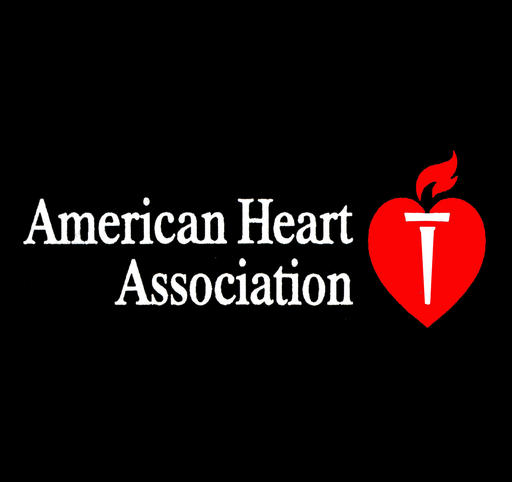Cholesterol: Never Having To Say You’re Sorry – Authors, Reviewers and RWI’s.
Posted on | November 20, 2013 | Comments Off on Cholesterol: Never Having To Say You’re Sorry – Authors, Reviewers and RWI’s.
Mike Magee
Tough week for the Cholesterol Franchise. When the major heart associations (American Heart Association and the American College of Cardiology) put out new guidelines in the journal Circulation(1), and instantaneously the Cleveland Clinic’s Steven Nissen and Brigham and Women’s Peter Libby trash the recommendations, and Harvard’s Paul M. Ridker and Nancy Cook let it be known that their article in Lancet this week will say a faulty risk calculator may result in “serious overprescription” – well, it’s enough to give you chest pain.(2,3)
We all have our biases that affect our recommendations and opinions. Some are built into out DNA. Some a part of our unique histories, places and methods of training. Some are expressions of ignorance or arrogance, blind sides, balance acts. And some evolve from “getting along” in order to succeed. The profession of Medicine and the Pharmaceutical Industry have both attempted to address at least some of these biases in the prescriptions of late to manage Conflict of Interest.(4,5) Transparency is the common theme.
In the case of my own biases related to Medicine the profession, nothing brings them out quite like cholesterol and statins. Here are a few of my biases:
1. Patients and doctors like their medicines too much.
2. Science really doesn’t understand the basic science of cholesterol in a comprehensive manner. (We’re not sure what the right level of LDL is, or why experimental meds that increased HDL were associated with more – not fewer – deaths) (6)
3. When Medicine makes a mistake (as in the Cholesterol Calculator this week), it has no vehicle to say to the public, “Sorry, we made a mistake.”
4. Doctors are way behind the leading edge of consumers in understanding the dietary contribution to chronic diseases including cholesterol management. (When you tell a doctor you cut out cheese and ice cream, and your total cholesterol dropped 50 points, he says, “I’d rather just buy Lipitor online and have the ice cream.”)
5. The Cholesterol Franchise is a really powerful industry. It’s made companies rise and fall. (Pfizer’s hostile take-over of Warner Lambert to get control of Lipitor(7); Pfizer’s stock decline when Torcetripib – to be the savior when Lipitor’s patent expired – increased cardiac events while it raised HDL levels(4). It has supported armies of marketers and salespeople, and sold more than a few million in DTC ads. The franchise also provides lifelong employment, notoriety and fame to a wide range of academicians and medical researchers in academic settings, research management companies and government agencies.
6. Reporting conflicts of interest (6), now more politely termed “Relationships With Industry” (RWI), does little to avoid true conflict of interest. Integrity can be compromised in so many subtle and hidden ways that are not reportable. And even if reported, reporters tend to overlook not only the RWI’s, but also the individual authors or advisers behind a series of official recommendations like those made this past week.
And still, I do believe there is a benefit to transparency.
On this last point, multiple articles on the new cholesterol guidelines and calculator last week directly quoted a range of heart luminaries, but rarely mentioned the participating sponsors – the American College of Cardiology, the American Heart Association, the NIH’s National Heart, Lung, and Blood Institute – and the intricate, multi-year process, let alone the actual authors and reviewers whose RWI’s were attached as appendages to the reports for public review. One would think that the individuals behind these controversial recommendations (and their RWI’s) would get a close look. Why? Because their disclosures are felt to be useful for consideration when reviewing the new recommendations in their entirety.
In that spirit, see below the list of authors and reviewers of the Circulation articles along with their self reported “Relationships With Industry” disclosures.
For Health Commentary, I’m Mike Magee.
AUTHORS RELATIONSHIP WITH INDUSTRY (RWI)

Neil J. Stone
Chair
Northwestern Memorial Hospital—Bonow Professor of Medicine, Feinberg School of Medicine, Northwestern University
(None Reported)

Alice H. Lichtenstein
Co-Chair, Tufts University, USDA Human Nutrition Research Center on Aging—Gershoff Professor of Nutrition Science and Policy; Professor of Public Health and Family Medicine
(None Reported)
Jennifer Robinson
Co-Chair
University of Iowa—Professor of Epidemiology and Medicine; Prevention Intervention Center— Director
2008-2012:
(Personal Research)
• Aegerion
• Amarin*
• Amgen*
• AstraZeneca*
• Esperion*
• Genentech/Hoffman LaRoche*
• GlaxoSmithKline*
• Merck*
• Sanofi-aventis/Regeneron*
2013: (Personal Research)
• Amarin*
• Amgen*
• AstraZeneca*
• Genentech/Hoffman LaRoche*
• GlaxoSmithKline*
• Merck*
• Sanofi-aventis/Regeneron*

C. Noel Bairey Merz
Cedars-Sinai Medical Center— Women’s Guild Endowed Chair in Women’s Health; Director, Barbara Streisand Women’s Heart Center—Director; Preventive Cardiac Center— Professor of Medicine
2008-2012:
(Consultant)
• Abbott Vascular
• Bayer
• Bristol-Myers Squibb
• Gilead
• Novartis
• Pfizer
• Posen
(Ownership/Partnership/Principal))
• ATS Medical
• Boston Scientific
• Eli Lilly
• Johnson & Johnson
• Medtronic
• Teva Pharmaceuticals
(Personal Research)
• RWISE
• Ranexa Microvascular
• Ranexa Angina
2013:
(Consultant)
• Amgen*
• Gilead
• Bristol-Myers Squibb
(DSMB)
(Personal Research)
• RWISE

Conrad Blum
Columbia University Medical Center, Columbia University College of Physicians and Surgeons—Professor of Medicine at CUMC
(None Reported)

Robert H. Eckel
University of Colorado, Denver School of Medicine—Professor of Medicine; Professor of Physiology and Biophysics; and Charles A. Boettcher II Chair in Atherosclerosis
2008-2012:
(consultant)
• Merck
• Pfizer
• Abbott
2013:
(consultant)
• Amylin
• Eli Lilly
• Esperion
• Foodminds
• Johnson & Johnson
• Novo Nordisk
• Vivus
(Personal Research)
• GlaxoSmithKline*
• Sanofi-aventis/Regeneron

Anne Carol Goldberg
Washington University School of Medicine,Associate Professor of Medicine
2008-2012:
(Consultant)
• Abbott
• Roche
• ISIS/Genzyme
• Sanofi-aventis
• Unilever
• Merck
(Personal Research)
• Abbott*
• Aegerion*
• Amarin*
• Amgen*
• Genentech/Roche*
• GlaxoSmithKline*
• ISIS/Genzyme*
• Merck*
• Novartis*
• Reliant*
• Sanofi-aventis/Regeneron*
• Sanofi-aventis*
2013:
(Consultant)
• Merck
(Personal Research)
• Abbott*
• Amarin*
• Amgen*
• Genentech/Roche*
• GlaxoSmithKline*
• ISIS/Genzyme*
• Merck*
• Sanofi-aventis/Regeneron*
David Gordon
Ex-Officio
NHLBI—Special Assistant for Clinical Studies, Division of Cardiovascular Diseases
(None Reported)

Donald M. Lloyd- Jones
Northwestern University Feinberg School of Medicine— Senior Associate Dean; Chair and Professor of Preventive Medicine; Professor of Medicine (Cardiology)
(None Reported)

Daniel Levy
Ex-Officio. NHLBI —Director of the Center for Population Studies
(None Reported)

Patrick McBride
University of Wisconsin School of Medicine and Public Health— Professor of Medicine and Family Medicine
(None Reported)

J. Sanford Schwartz
University of Pennsylvania School of Medicine— Leon Hess Professor of Internal Medicine, Health Management and Economics
2008-2012:
(Consultant)
• Abbott
• Allergan
• Amgen
• Daiichi-Sankyo
• Genentech
• Johnson & Johnson
• Merck
• Pfizer
• Shire Pharmaceuticals
(Personal Research)
• Pfizer
2013:
(Consultant)
• Abbott
• Allergan
• Amgen
• Daiichi-Sankyo
• Genentech
• Johnson & Johnson
• Merck
• Pfizer
• Shire Pharmaceuticals
(Personal Research)
• Pfizer

Sidney C. Smith, Jr
University of North Carolina— Professor of Medicine; Center for Cardiovascular Science and Medicine—Director
(None Reported)

Karol Watson
University of Los Angeles Medical School—Co-Director
2008-2012:
(Consultant)
• Abbott
• AstraZeneca
• Genzyme
• GlaxoSmithKline
• Kos
• Medtronic
• Merck
• Novartis
• Pfizer
(Ownership/Partnership/Principal)
• Merck
2013:
(Ownership/Partnership/Principal)
•Merck

Peter W.F. Wilson
Atlanta VA Medical Center and Emory University School of Medicine—Professor of Medicine
2008-2012:
(Consultant)
• Merck
• XZK
(Personal Research)
• Merck
• Liposcience
2013: (Personal Research)
• Merck
EXPERT REVIEWERS RELATIONSHIP WITH INDUSTRY (RWI)

Roger Blumenthal
Johns Hopkins Hospital Ciccarone Preventive Cardiology Center — Professor of Medicine
(None Reported)

Andrew Kates
Washington University School of Medicine in St. Louis— Cardiovascular Fellowship Program Director
(None Reported)

John Rumsfeld
Denver VA Medical Center, University of Colorado— National Director of Cardiology, U.S. Veterans Health Administration
(None Reported)

E. Magnus Ohman
Duke Clinical Research Institute— Professor of Medicine; Director, Program for Advanced Coronary Disease;ACC/AHA Task Force on Practice Guidelines
(None Reported

William Virgil Brown
Emory University School of Medicine;NLA
(Consultant)
• Abbott
• Amgen
• Anthera
• Bristol-Myers Squibb
• Catabasis
• Cerenis
• GlaxoSmithKline
• Genzyme
• LipoScience
• Merck
• Pfizer
• Regeneron

Linda Hemphill
Massachusetts General Hospital— Director, LDL, Apheresis Program; NLA
(Consultant)
• Regeneron

Matthew Ito
Oregon Health & Science University, Department of Pharmacy Practice, Professor; NLA
(Speaker’s Bureau)
• Aegeron
• Kowa

Carl E. Orringer
Case Western Reserve University School of Medicine—Associate Professor of Medicine; NLA
(None Reported)

Robert S. Rosenson
Mount Sinai Hospital— Director, Preventive Cardiology; Professor of Medicine, Cardiology; NLA
(Speaker’s Bureau)
• Amgen
• LipoScience
• Novartis
• Pfizer
• Sanofi-aventis/Regeneron
Robert A. Wild
University of Oklahoma, College of Medicine, Professor; Department of Obstetrics and Gynecology; NLA
(Speaker’s Bureau)
• Atherotec
“This table reflects the relevant healthcare-related relationships of authors with industry and other entities (RWI) provided by the panels during the document development process (2008-2012). Both compensated and uncompensated relationships are reported. These relationships were reviewed and updated in conjunction with all meetings and/or conference calls of the expert panel during the document development process. Authors with relevant relationships during the document development process recused themselves from voting on recommendations relevant to their RWI. In the spirit of full transparency, the ACC and AHA asked expert panel members to provide updates and approve the final version of this table which includes current relevant relationships (2013).”
Per ACC/AHA policy:
“A person is deemed to have a significant interest in a business if the interest represents ownership of ≥5% of the voting stock or share of the business entity, or ownership of ≥$10,000 of the fair market value of the business entity; or if funds received by the person from the business entity exceed 5% of the person’s gross income for the previous year. Relationships that exist with no financial benefit are also included for the purpose of transparency. Relationships in this table are modest unless otherwise noted.
*Significant relationship. †No financial benefit.”
References:
1. Stone NJ et al. 2013 ACC/AHA Guideline on the Treatment of Blood Cholesterol to Reduce Atherosclerotic Cardiovascular Risk in Adults: A Report of the American College of Cardiology/American Heart Association Task Force on Practice Guidelines Circulation, November 12, 2013 http://circ.ahajournals.org/content/early/2013/11/11/01.cir.0000437738.63853.7a.full.pdf
2. Kolata G. Risk Calculator For Cholesterol Appears Flawed. NYT. November 17, 2013http://www.nytimes.com/2013/11/18/health/risk-calculator-for-cholesterol-appears-flawed.html?pagewanted=1
3. Ridker PM, Cook NR. Statins: new American guidelines for prevention of cardiovascular disease. Lancet. November 20, 2013. http://www.thelancet.com/journals/lancet/article/PIIS0140-6736(13)62388-0/fulltext
4. AAMC Publications. Protecting Patients, Preserving Integrity, Advancing Health: Accelerating the implementation of COI Policies in Human Subjects Research. 2007. https://members.aamc.org/eweb/upload/Protecting%20Patients,%20Preserving%20Integrity.pdf
5. PhRMA Principles On Conduct Of Clinical Trials. 2013. http://phrma.org/sites/default/files/pdf/042009_clinical_trial_principles_final.pdf
6. Tall AR, Laurent YC, Wang N. The Failure of Torcetrapib. 2007. Atherosclerosis, Thrombosis, and Vasular Biology. http://atvb.ahajournals.org/content/27/2/257.full
7. Petersen M. Pfizer Gets It’s Deal To Buy Warner Lambert For 90.2 Billion. NYT. February 8, 2000. http://www.nytimes.com/2000/02/08/business/pfizer-gets-its-deal-to-buy-warner-lambert-for-90.2-billion.html
Tags: ACC > AHA > American College of Cardiology > American Heart Association > cardiac risk calculator > cholesterol guidelines > cholesterol risk calculator > Circulation cholesterol guidelines > lipitor > National Heart Lung and Blood Institute > NHLBI > Pfizer > statins > Torcetrapib






